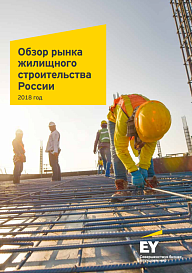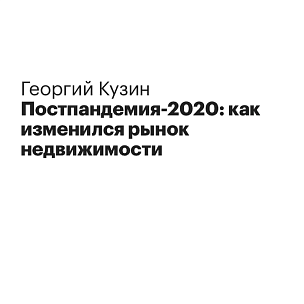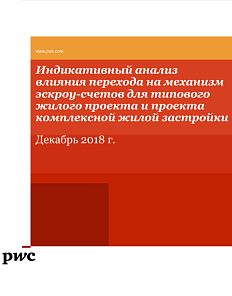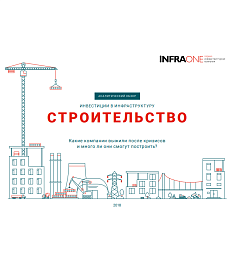Overview of the Housing Construction Market in Russia

The weighted average percentage rate for projects financed through the mechanism of project financing via escrow accounts is projected to be around 6-8%. At the end of December 2018, 77 projects comprising 183 sites with a total floor area of over 1.5 million square meters were implemented using escrow accounts. Among Russian regions, the Republic of Bashkortostan had the greatest number of such projects (around 24 projects), while the Moscow Oblast was leading by the total floor area of the projects (over 320 thousand square meters).
Stress testing of financial stability of the projects shows that in case of a 10% decrease in average market prices for all sites, 55% of the projects will remain creditworthy. Projects with a low resistance to changes in market environment and poorly balanced projects may require certain restructuring and an optimization of their parameters, while projects which are currently at early stages may be canceled. As for aggregated financial stability (the share of creditworthy projects at the construction stage), the best results are demonstrated by the Far Eastern, Central, Northwestern, and Ural federal districts.
Anlytics on the topic

In the article RBK addresses impact of coronavirus pandemic on the real estate market, including commercial and business premises.

In 2018, Russia launched a major reform aimed at developing the construction sector and solving the problems associated with shared construction. It is planned to start the transition to project financing using escrow accounts in mid-2019. The publication by PwC studies the effect of using escrow accounts.

In this analytical review InfraONE studies the current state of the Russian construction market as well as its key segments and players and gives a forecast of the industry’s prospects for the next few years.

This report by HPBS examines international experience with and government tools for promoting sustainable development, green construction, and energy efficiency.

